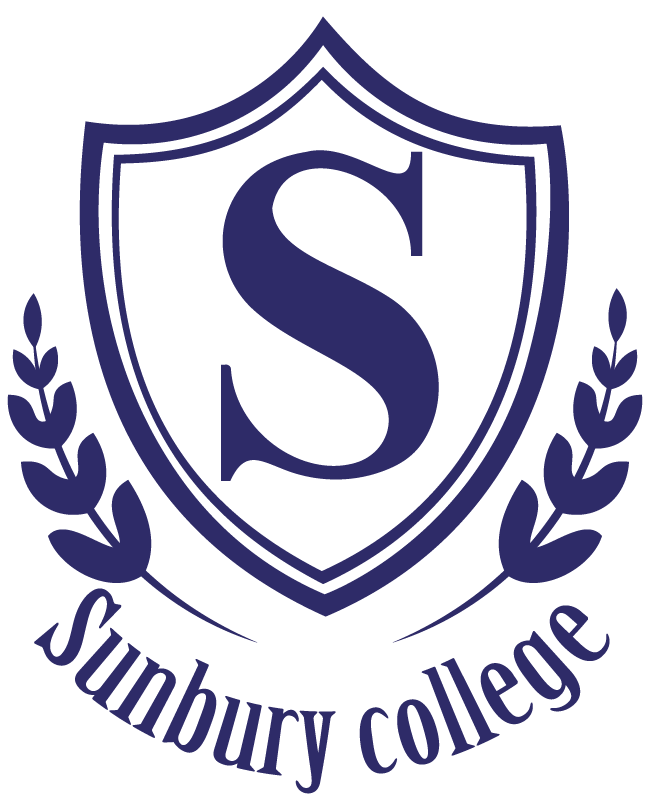Earn Your GCSEs Online — Wherever You AreFlexible. Fully Supported. Globally Recognised.

YOUR GCSE GATEWAY
GCSEs (General Certificates of Secondary Education) are essential academic qualifications typically studied between the ages of 14 and 16. Recognised across the UK and internationally, they provide a strong foundation for further education and serve as a benchmark of your knowledge and skills across a broad range of subjects.
At Sunbury, we understand how powerful these qualifications can be. Whether you're aiming to progress to A-Levels, access vocational training, or improve your job prospects, achieving key GCSEs — especially in English and Maths — is often a vital step.
Missed out the first time? Whether you're retaking a subject or starting from scratch, we’re here to support your next chapter. Earning your GCSEs could be the turning point — opening doors to opportunities that may have felt out of reach.
Delivered through our accredited affiliate partners, our GCSE pathway leads directly to A-Levels or international foundation programmes. Just let us know which subjects you want to pursue — and we’ll guide you from there.

PLANNING YOUR FUTURE STARTS HERE
Your GCSE subject choices lay the foundation for everything that comes next — whether it’s A-Levels, university, or your career.
Choosing subjects aligned with your goals can open doors to the courses and opportunities you care about most.
Our expert advisers are here to help you make confident, informed decisions.
At Key Stage 4, we offer a flexible online GCSE programme featuring a broad selection of subjects.
GCSEs and IGCSEs are recognised globally and followed by thousands of schools across the UK and beyond.
Students typically select five subjects, including the core areas of Mathematics, English, and Science.

PROGRAM REQUIREMENTS
At Sunbury College, we believe education should be accessible to all, regardless of background or prior academic experience. That’s why we do not impose formal entry requirements for enrolling in our online GCSE courses.
Whether you're returning to education, switching academic paths, or studying GCSEs for the first time, our flexible online programme is designed to support learners of all ages and circumstances.
Who can enrol?
Students preparing for university entry or career advancement
Adult learners seeking to gain essential qualifications
Home-educated students and international learners
All you need is a willingness to learn and a commitment to your studies — we’ll provide the rest.
Explore Our GCSE Subject Options
Study what matters most to your future — with full support and zero application fees.
Choose from a range of GCSE subjects designed to build your academic foundation and prepare you for A-Levels, further education, or your future career path.
-
GCSE (9-1) Mathematics Foundation Tier
Build core numeracy and problem-solving skills with real-world applications. This course covers number, algebra, geometry, statistics, and ratios, giving students the practical maths they need for everyday life and future study.
-
GCSE English Language
Master the art of communication. This course develops reading, writing, speaking, and listening skills through the analysis of fiction and nonfiction texts. It’s essential for academic success and life beyond school.
-
Chemistry
Understand the substances that make up our world. GCSE Chemistry explores atomic structure, chemical reactions, acids and bases, organic chemistry, and environmental science. It’s ideal preparation for careers in medicine, engineering, and research.
-
Physics
Discover the laws that govern the universe — from atomic particles to galaxies. GCSE Physics explores motion, forces, energy, waves, electricity, and the structure of matter. This course builds critical thinking and problem-solving skills essential for further study in science and engineering.
-
Biology
Explore the science of life. GCSE Biology helps students understand the living world — from cells and organisms to ecosystems and genetics. With real-world relevance, this course lays the foundation for health sciences, biotechnology, and environmental studies.
-
Psychology
Gain insight into how people think, feel, and behave. GCSE Psychology introduces memory, learning, social influence, development, and mental health. Perfect for students interested in human behaviour and careers in health, education, or law.
